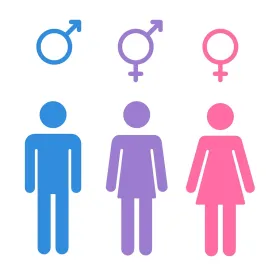The Forstater – v – CGD Europe gender identity case last week has attracted a great deal of coverage for its conclusion that beliefs that gender is fixed at birth and immutable are worthy of respect in a democratic society.
Actually, the key point to the case in practical terms is something else entirely, a matter of potentially significant impact to employers quite untroubled by gender identity issues.
Ms Forstater’s beliefs became the subject of Employment Tribunal litigation because her tenure as lecturer with CGD Europe was not renewed when colleagues found offensive some of her social media posts on the topic. She claimed that this decision was discriminatory, but for that, her belief that gender never really changed needed to be one protected under the Equality Act.
One of the conditions which allow a belief to be protected in that way is that it be “worthy of respect in a democratic society”. The original ET found that Forstater’s stated beliefs in this respect were essentially discriminatory against trans people and therefore could not pass that worthiness test, but the EAT has now overruled that. Fine, but the terms in which it has done so could easily be seen as a hostage to fortune in future cases around the sanctity of beliefs and freedom of expression in the workplace. It appears that the EAT recognises this – the head-note (official summary) to the decision goes out of its way to set out what the case does not (that word highlighted even in the official version) mean, pretty much to the exclusion of what it does.
The key passage for employers deals with just how difficult to swallow a belief must be before it will fail the worthiness test. It says that this will only be “those beliefs which are an affront to [EU Human Rights] Convention principles in a manner akin to that of pursuing totalitarianism or advocating Nazism or espousing hatred and violence in the gravest of forms“, and that “beliefs which are offensive, shocking or even disturbing to others and which fall into the less grave forms of hate speech would not be excluded from that protection“.
Not “akin to Nazism”. Beliefs which entail some level of hatred and violence are worthy of protection so long as not “in its gravest form”. Wow. A pretty depressing prospect on the face of it but the whole problem with freedom of belief is that it doesn’t just apply to you and so irritatingly, other people get to believe what they want as well, however alien it is to your own world-view. There are limits to this referred to in the judgment, but they are frankly of little reassurance – the Judge says, for example, that the worthiness test would probably be failed by a belief that “all non-white people should be forcibly deported for the good of the nation“. However, that is not because of the violence and disorder and division which that would be bound to create, but because of the “inevitability that the rights of others would be destroyed“, whereas there was little in Forstater’s beliefs which had that effect. “Ordinary” race or gender or religious supremacy theories would not seem even to move the needle on this.
These are very low aspirations for the Equality Act and may unfortunately be taken as legitimising all sorts of difficult, dangerous and actively repugnant life-beliefs on the part of your employees on the basis that Forstater gives them a green light to say or post whatever they want about them.
However, that would not be completely right. The EAT noted immediately that though an employee can therefore believe more or less what he likes, the manifestation of such beliefs might justifiably be restricted under Articles 9 or 10 of the Convention, i.e. where and to the extent “necessary in a democratic society in the interests of public safety, for the protection of public order, health or morals, or for the protection of the rights and freedoms of others”. Therefore having beliefs which some, even many, would find upsetting or offensive is likely to be protected, but that does not give you carte blanche to act upon or express them to others in terms which may be discriminatory or aggressive or criminal or even just disruptive in the workplace. Forstater’s win here does not mean that she wins her discrimination claim, merely that the ET now has to consider whether the decision not to renew her contract was because of what she believed, the manner of her manifestation of that, or something wholly unrelated.
Although the line between having a belief and manifesting it is a thin one, it is one to which employers will now need to pay particular attention in taking action against those whose distressing or offensive words or deeds in the workplace purport to be the product of a belief of this sort. The mere fact of that belief being actually or prospectively repugnant to other colleagues is not by itself going to be enough if the bar to what is deemed worthy of respect in a democratic society is now set so low.
So what else does this decision not mean, according to that head-note?
-
it does not legitimise conduct which would count as discrimination or harassment under the Equality Act, nor conduct which would fall under the ordinary criminal law relating to the incitement of disorder or hate speech, for example;
-
it does not mean that people on the wrong end of actions or omissions arising from the employee’s beliefs (here the trans population but as easily groups based on gender or race or orientation) are not entitled to the protections of the law in those respects; and
-
it does not mean that employers cannot discipline or dismiss, especially after warning, those who express or demonstrate their beliefs in ways which are inappropriate in their impact on the workplace and so cause material distress or offence to others.




 />i
/>i

